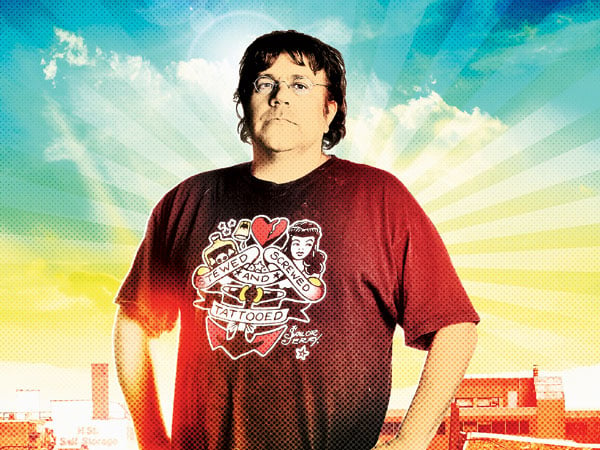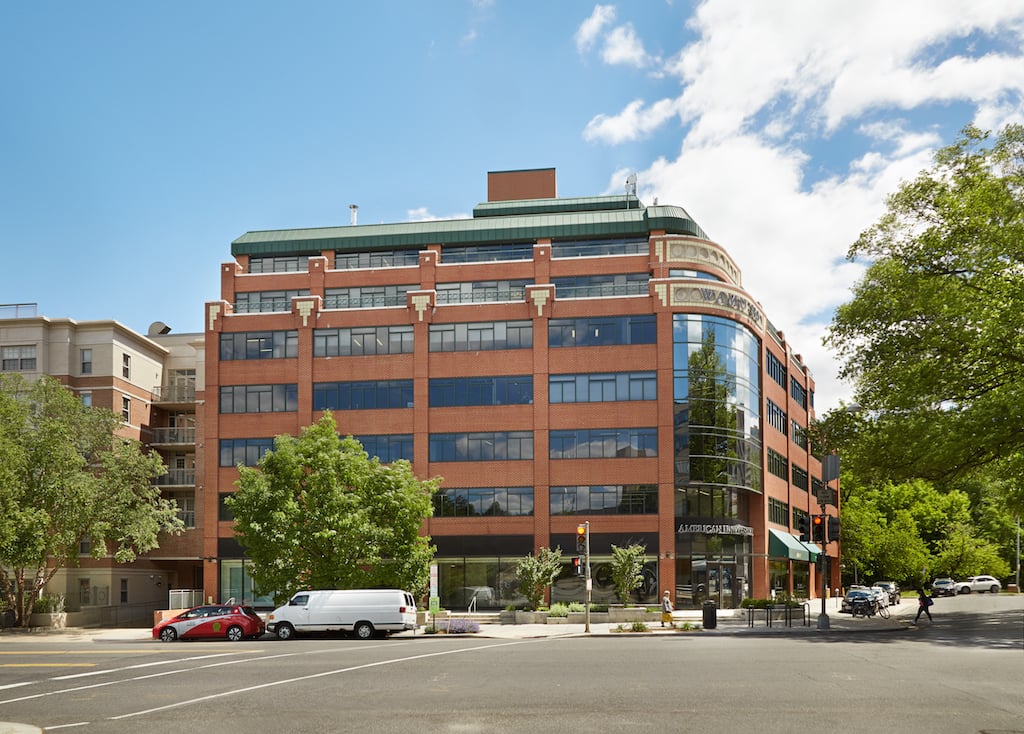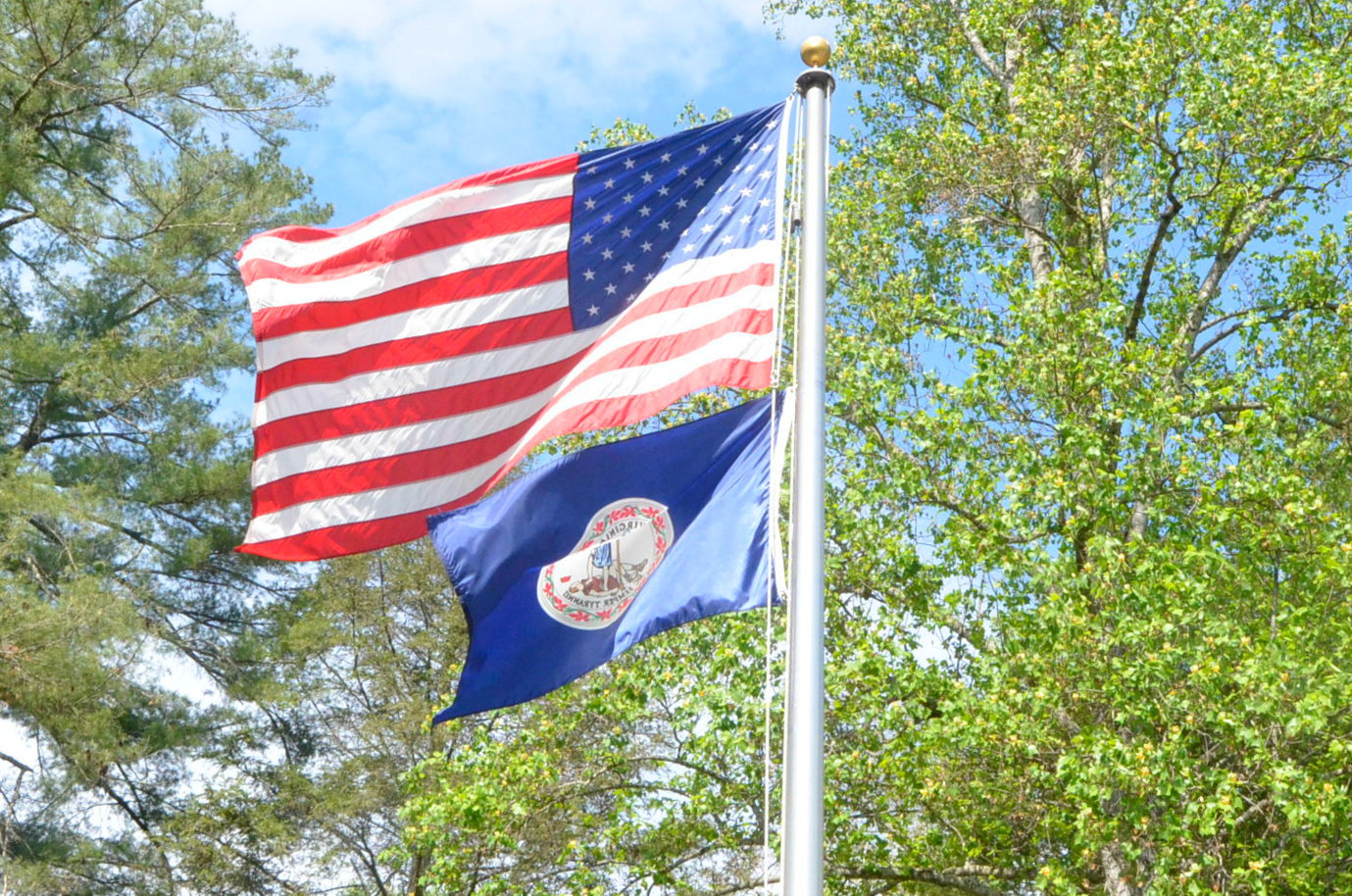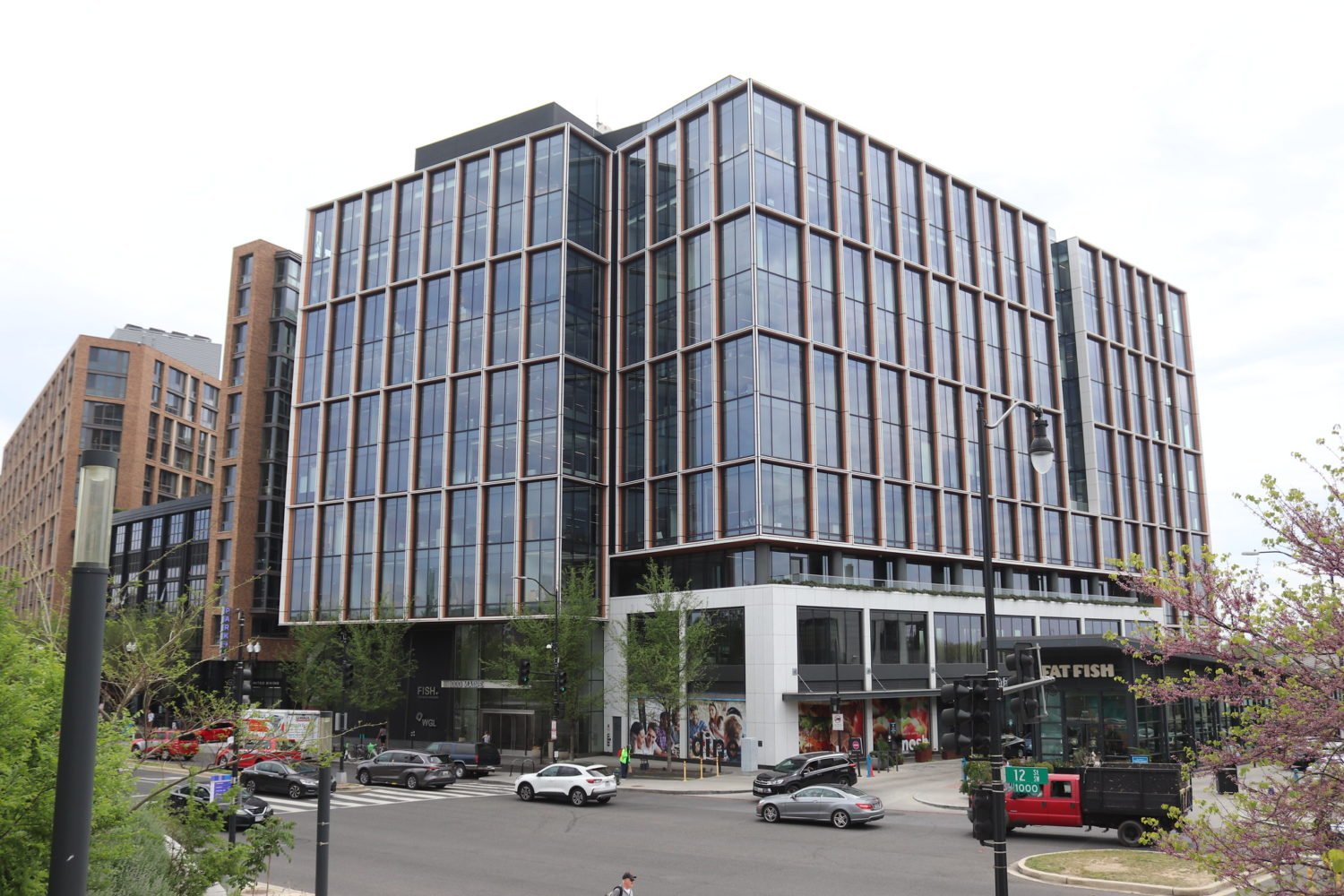Illustration by Josue Evilla.
Joe Englert can’t sit still–not in an interview, not in life. Since coming to Washington in the 1980s, he has opened more than two dozen nightspots here–more than one a year. The first was called Club Random. The second, 15 Minutes.
Englert’s best-known bars are cathedrals of camp. At the Big Hunt, tribal masks stare down from walls and a man’s arm dangles from a dragon’s jaw. At H Street Country Club, mini-golf players putt around a fiberglass Marion Barry. The lamps at Trusty’s Full-Serve are fashioned from vintage motor-oil cans and beer is served through the windows of a yellow school bus. At the late Insect Club, patrons munched on “mealworms Rockefeller” beside a giant ant farm depicting a history of the world from the Crucifixion through the first space walk.
Englert opened bars on Northwest DC’s U Street and Northeast’s H Street when those strips were synonymous with drugs and violence, and he helped turn them into two of the city’s hippest nightlife districts. But more than anything, his places, in number and design–flying bread loaves, stuffed unicorns, Presidents’ heads cast as Easter Island giants–are a symptom of their owner’s need for constant stimulation.
Skip Coburn, head of the DC Nightlife Association, a 400-member trade group, ranks Englert as the city’s most prolific opener of new bars. “The king,” Coburn says.
Teddy Folkman, the acclaimed chef and Food Network celeb whom Englert lured to the restaurant Granville Moore’s, says that Englert, who turned 51 in January, is “like a super-highly educated 12-year-old.”
“Joe spends his money as fast as he gets it–on the next place,” says Joe Lyon, one of several bartenders Englert groomed into bar owners. “He can’t help himself. I don’t want to call it an addiction, but it’s what fascinates him: ‘Hey, wouldn’t it be cool to buy this old firehouse and turn it into a neighborhood bar?’ It’s how creative it will be or how the neighborhood will think it’s really cool. Or how he’ll be the only place in town selling chocolate French fries.”
When Englert showed me his office, on a back alley on Capitol Hill, it took me a moment to realize it was a place of work; the desk seemed an afterthought amid the pinball machines, bubble-hockey table, and bench press. But even it bores him.
“He comes in like a whirlwind–maybe 20 to 30 minutes, an hour if I’m lucky,” says Cheryl Webb, his assistant, “and then that’s it–‘I’ll see you the next day.’ “
Englert opened his laptop the instant he sat down for one of our interviews. “Can I multitask or will you be offended?” he asked.
I told him I didn’t mind so long as he was coherent.
“That never happens,” he said.
As a boy in Catholic school in Pittsburgh, he told me, the nuns beat him for turning away while they were talking to him.
The matter of Englert’s attention span is no longer academic. In 2004, he startled local officials by buying eight decrepit buildings on H Street and seeking liquor licenses for all of them. On a strip beaten down by poverty and neglect, Englert glimpsed a future of postcollegiate hipsters–“beardos,” he calls them–guzzling drinks at nightspots with names like the Rock & Roll Hotel and the Palace of Wonders (now called Red Palace). He went all in: taking out equity from other bars and spending close to $3 million to buy and renovate the buildings.
In the old days, Englert handed new bars off to partners and went looking for the next big thing. Now he’s all but living on H Street. He checks the jukebox in one place, the rooftop bar being built at another. He stops unannounced at a pie shop to crack jokes and hand out flyers.
“For the first time in my life, I’m not in expansion mode. We’re trying to bring in a lot of businesses. We want the bike store. We want the rollerblade store. We want the mom-and-pop clothes emporium. We want the small deli.”
H Street is at a crossroads, he says, and he has had to hunker down, focus. He hired one man to sweep the streets and another, with a Prius (the Eco-Cab, Englert called it), to shuttle customers to and from Union Station. To call attention to the corridor’s rebirth, he named its east end the Atlas District, after a historic movie theater that reopened as an arts center in 2006. He began hosting a series of “Street Talk” meetings at a coffeehouse, inviting business owners and the public to brainstorm ideas for the strip’s future. Along the way, he has grown close to Ward 6 councilman Tommy Wells, relaying gripes from H Street business owners and helping Wells build support for his own initiatives in the neighborhood.
“For the first time in my life, I’m not in expansion mode,” Englert said when we met late last year. “We’re trying to bring in a lot of businesses. We want the bike store. We want the rollerblade store. We want the mom-and-pop clothes emporium. We want the small deli.
“But where do they find the capital?” he said. “How is it going to turn into 14th Street,” the now-vibrant corridor that intersects with U Street?
For a man who likes to joke about his attention deficit disorder, commitment is strange territory.
“All of a sudden it’s not my little fun kingdom where I’m building bars and restaurants,” he says. “Now I’m trying to facilitate and marry up like-minded people. But, man, phase two”–drawing businesses to the street that aren’t either bars or restaurants–“is hard going.”
Could it be that at age 51, Englert, the class clown, has finally grown up? He has a wife, a house in DC’s Cleveland Park, a pair of teenage sons he takes to batting cages in the suburbs. He’s even writing a memoir. When I asked people whether getting serious would save or destroy him, some said I’d overlooked another possibility: that Joe was just going through a phase.
Englert is a man of Falstaffian proportions and predilections. He is a shade over six feet tall, with a broad nose, a dimpled chin, and a barrel chest atop disproportionately trim legs. He plays tennis every weekday morning and often goes the rest of the workday–meetings with business partners, council members, bankers–without a shower or change. Most days find him in a sweat-stained T-shirt, athletic shorts, New Balance sneakers, and white crew socks.
“I’ve been to million-dollar real-estate settlements with him and he’s wearing the same thing,” says Joe Lyon, the former Englert bartender, who now owns the 51st State Tavern in DC’s Foggy Bottom.
The only hint of vanity is the toupee Englert has worn since he began balding in his twenties. The receding hairline “visibly aged him in a way that was so 180-degrees different from his very being and spirit,” says Chris Clifford, a college friend who followed Englert to DC.
Englert takes taxis everywhere, even to drop his kids off at school. Cars, he’ll tell you, get you one thing: parking tickets. Metro? Not social enough. On the buses in his beloved hometown of Pittsburgh, Englert says, “people show you pictures of grandkids and they talk about restaurants they like to go to. If you talk to anyone on Metro, they think you’re insane.”
He reflects for a moment, then breaks into a smile: “Maybe it’s because I’m always in shorts.”


















